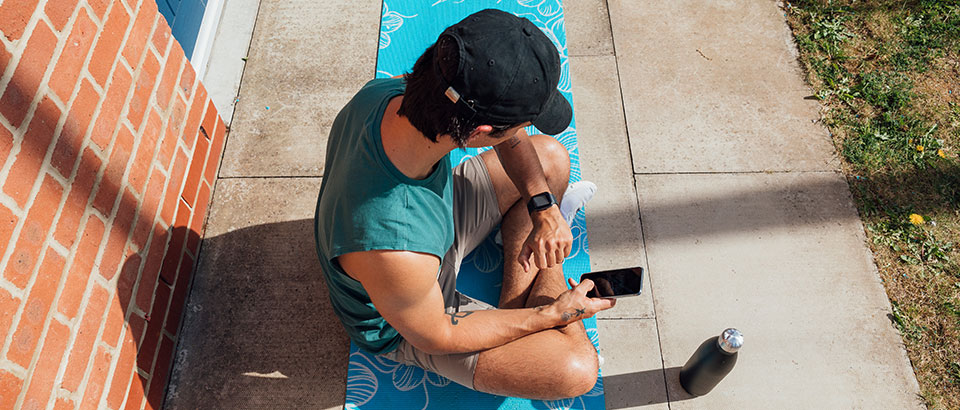September 14, 2020
With all the changes in your twenties, it can be easy to put your health on the backburner. You may also be in the camp of “I’m young and have nothing to worry about!” However, by implementing some small, but impactful health habits, you can set yourself up for wellness success for life.
1. Be Proactive about Your Health
Think about your health like your car. There’s a reason why car dealerships push maintenance schedules. Those schedules are designed so that you’re getting the right inspections, tune ups and more at the right time so that you can prevent bigger (and more expensive!) issues down the road – pun fully intended. Your health is the same way. If you’re proactive about taking care of your body before something aches, breaks or just doesn’t seem right, you’ll be better off in the long run.
As a young adult, one of the first ways you can do this is by establishing your care squad – aka, your primary care provider (PCP), nearest urgent care center and specialists you may need for some more specific medical needs. Oftentimes, you can’t see your pediatrician after you turn 21, so you’ll need to find a new set of medical providers to care for you in your twenties and beyond.
You may be wondering what the difference between your PCP, specialist and an urgent care center is. Your primary care provider looks out for your total health. They know you and your family’s medical history and can offer support in managing long-term health concerns, like diabetes, in addition to being a resource for sore throats, ear aches and more. They also have access to your immunization records and can advise on whether or not your immunizations need boosters in your twenties (more on that later!). PCPs can also provide a referral to a specialist if you need to see one. Specialists are doctors who are focused on a specific branch of medicine, like cardiology or dermatology.
But what about when you have a cough or a UTI on the weekend that can’t wait until Monday? That’s where urgent care centers, like MedExpress, come in. They are open for extended hours each day (and on weekends!) and can tackle minor illnesses and injuries, but can also provide digital X-rays and splint broken bones. It’s a good idea to have a PCP – but to also know where your closest urgent care center is, what their hours are and if they accept your insurance.
Once you’ve found your health providers, you can work with them to determine what check-ups and tests you may need and how often. You should aim to visit your PCP at least once a year. They’ll measure and record your weight, blood pressure and may do bloodwork to check for things like elevated cholesterol levels. Additionally, it’s a good idea to be tested for STDs at least once a year.
2. Know Your Health History
Next, know your family’s health history. When you visit a new health care provider for the first time, they’ll ask you to fill out various forms. Some of these forms may ask for the health history of your immediate family – like your parents, siblings, and grandparents. Medical providers use this information about your family to see if certain conditions may be hereditary or if you may have an increased chance of experiencing high blood pressure, diabetes, certain cancers or more.
As a child, your parents likely had to hand over your vaccination record every time they registered you for school, day care, summer camp or a sports team. And even though those days are in the past, it’s still a good idea to have a copy of your childhood vaccination record as an adult just in case you do need to provide it for certain jobs or traveling abroad. Also, it's always good to know if and when you may be due for a booster of certain vaccines, like HPV.
3. Find a Workout You Love

Maybe you were a star athlete in high school – or maybe you were hoping you could take a sick day the day you had to run a mile in gym class. Either way, exercise becomes so much more enjoyable when you find an activity you love. If running isn’t your favorite, that’s okay!
Try a low impact (not synonymous for low effort) workout like indoor cycling, yoga or strength training. However you choose to get your sweat on, find something you enjoy and stay consistent. If your schedule allows, aim for 30 minutes of physical activity at least 5 times a week.
4. Learn How to Eat, Not What to Eat
Okay, hear us out. Yes, you literally know how to eat (we hope!), but do you know how to pick foods that fuel your body and provide the proper nutrients you need? Nutrition is key here. In your early twenties, you may be used to eating macaroni and cheese multiple times of week or indulging on late-night fast food after a night out with friends. All foods are fine in moderation, but it’s a good idea to make sure you’re eating whole foods the majority of the time. If you didn’t know, whole foods are those that haven’t been processed or have been minimally refined before eating them. So think of your fruits, vegetables, whole grains, and fresh meat and seafood you buy at the grocery store. Whether you cook for yourself or you prefer to grab takeout a few times a week, focus on lean proteins. Make sure you get at least one serving of fruits or vegetables per meal, and pick whole wheat grains like brown rice or whole wheat pasta and bread whenever possible. Remember, it doesn’t have to be all or nothing. Small, smart choices are the building blocks of long term success.
5. Be Diligent about SPF
Your twenties is the best time to take care of the skin you have now so it looks just as great 30 years from now. That’s not to say aging won’t occur between now and then, but you can definitely help slow the rate of aging with small, easy steps. For example, unprotected sun exposure is one of the leading causes of premature skin aging. It’s a good idea to make it a habit to apply sunscreen to your face every day, no matter what. Oh, and don’t forget your neck, hands and ears, too.
These are just some of the good habits you can make now that will pay off in the long run. For more ways you can focus on better health, visit our blog.

